In the colder winter months, it is important to have a Humidifier in your home. This helps to keep you warm and comfortable, and can also help with your respiratory health. But what is the difference between a Humidifier and a Dehumidifier? And which one should you choose for your home? This article will discuss the pros and cons of both Humidifiers and Dehumidifiers so that you can make an informed decision about which one is right for you!
What does each do?
Humidifier
A Humidifier is a device that increases humidity (moisture) in the air. This can be done for aesthetic reasons, health reasons, or to prevent damage to the home. This device is often used in winter when the air is dry due to indoor heating, or in places with low humidity levels.
Dehumidifier
A Dehumidifier is a device that removes moisture from the air. This can be done for aesthetic reasons, health reasons, or to prevent damage to the home. This device is often used in summer when the air is damp due to outdoor humidity, or in places with high humidity levels.
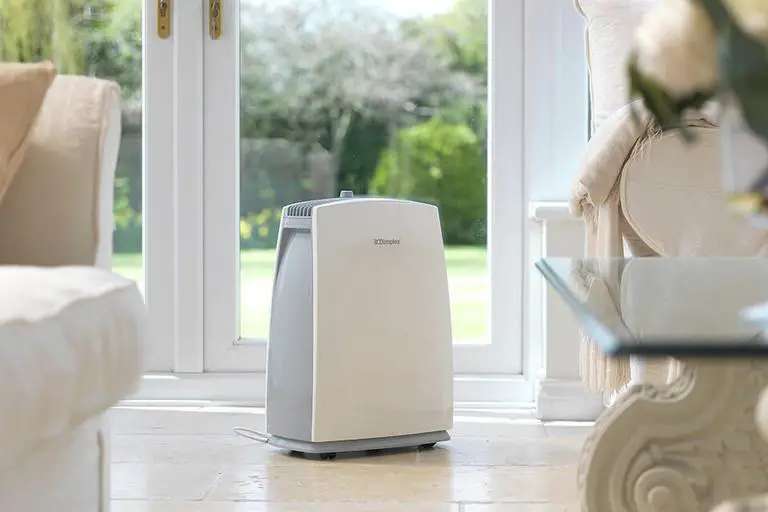
There are two main types of Dehumidifiers: refrigerants and desiccants. Refrigerant Dehumidifiers work by cooling the air, which causes the water to condense. Desiccant Dehumidifiers work by absorbing moisture from the air.
So, which is better for your home? It depends on your individual needs and the climate you live in. If you live in a climate with high humidity levels, a Dehumidifier may be the better option to keep your home comfortable and prevent damage. If you live in a climate with low humidity levels, a Humidifier may be the better option to keep your skin and sinuses hydrated and healthy [1].
Types of Humidifiers
Humidifiers are produced in various types which include console Humidifiers, whole-house Humidifiers, and portable Humidifiers. You should consider all the types available in the market before settling on one since they all have different features that might be more or less appealing to you.
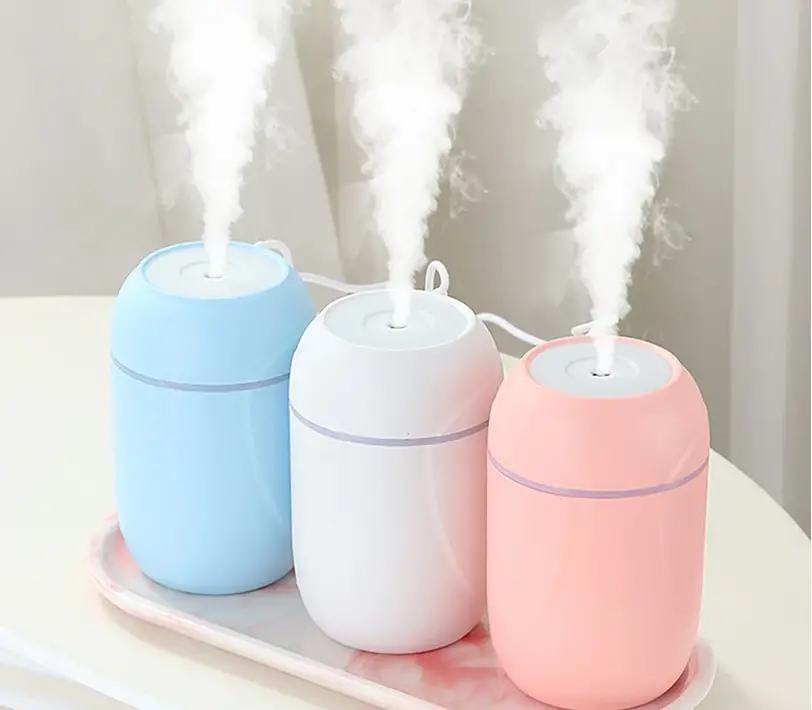
1. Central Humidifiers
If you have a forced-air heating system in your home, then you already have the ductwork needed to install a central Humidifier. These are also known as whole-house Humidifiers and are by far the most expensive type of Humidifier.
2. Evaporators
Evaporator Humidifiers are placed on top of a radiator. The unit contains a wick that absorbs water from a reservoir and then the heat from the radiator vaporizes the water, which then goes into the air in your home.
3. Impeller Humidifiers
An impeller Humidifier has a rotating disc that flings water against a diffuser, breaking it into tiny droplets which are then sprayed into the air. These devices are much quieter than ultrasonic humidifiers and don’t require as much maintenance.
4. Ultrasonic Humidifiers
This type of Humidifier uses high-frequency vibrations to create a fine mist of water that is then released into the air. These devices are very quiet, making them a good choice for use in a nursery or bedroom. However, they do require regular cleaning to prevent the growth of mold and mildew [2].
5. Vaporizers
A vaporizer Humidifierheats water until it boils and then releases the steam into the air. These Humidifiers can be used with essential oils to create a pleasant-smelling environment, but they require regular cleaning to prevent the growth of bacteria.
6.Steam Humidifiers
A steam Humidifier works by passing water through a heating element which vaporizes it and then releases the steam into the air. These Humidifiers are very effective but can be expensive to operate since they use a lot of electricity.
Types of Dehumidifiers
1. Whole-House Dehumidifiers
Whole-house Dehumidifiers are the most expensive type of Dehumidifier, but they are also the most effective. They are designed to work with your home’s HVAC system to remove humidity from the air throughout your entire house. Whole-house Dehumidifiers are a good choice if you live in a humid climate or if you have a history of allergies or respiratory problems.
2. Desiccant Dehumidifiers
Desiccant Dehumidifiers use a special type of material to absorb moisture from the air. This makes them more effective than other types of Dehumidifiers in very humid climates. They are also less likely to overheat and can be used in enclosed spaces such as closets and cabinets [3].
3. Thermoelectric Dehumidifiers
Thermoelectric Dehumidifiers use electricity to create a cooling effect that removes moisture from the air. They are less effective than other types of Dehumidifiers, but they are more energy-efficient and cost-effective.
4. Refrigerated Coil Dehumidifiers
Refrigerated coil Dehumidifiers work by cooling the air to remove moisture. They are more effective than thermoelectric Dehumidifiers, but they use more energy and are more expensive.
Problems Indicating the Need for a Humidifier or a Dehumidifier
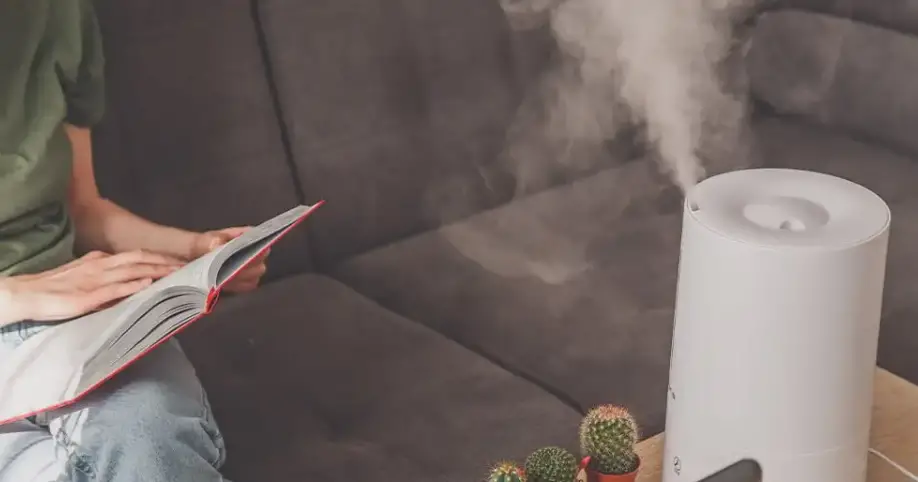
When the humidity in your home falls below 30%, you may start to experience some of the side effects of dry air. These can include:
- Static electricity
- Dry, itchy skin
- Cracked, chapped lips
- Dry sinuses and nosebleeds
- Difficulty breathing
- Excessively dry throat
Conversely, if the humidity in your home rises above 50%, you may start to experience some of the side effects of too much moisture in the air. These can include:
- Musty smells
- Damp-feeling walls or floors
- Condensation on windows or other cold surfaces
- Mold or mildew growth
If you’re experiencing any of these problems, it may be time to invest in a Humidifier or Dehumidifier [4].
How do Humidifiers Work?
Humidifiers work by releasing water vapor into the air. There are several types of Humidifiers, but the most common are ultrasonic, evaporative, and steam vaporizers.
Ultrasonic Humidifiers use high-frequency vibrations to turn water into a fine mist that is then released into the air. Evaporative Humidifiers have a wick that absorbs water from a reservoir and then blows air over it, causing the water to evaporate into the air. Steam vaporizers heat water to create steam, which is then released into the room.
How do Dehumidifiers Work?
Dehumidifiers work by drawing in air from the room and passing it over a cold coil. This causes the water in the air to condense on the coil and drip into a reservoir. The dry air is then blown back into the room.
Additionally, some Dehumidifiers have a built-in heater that can be used to reheat the air as it is being blown back into the room.
Do You Need a Humidifier or a Dehumidifier?
The answer to this question depends on the current humidity levels in your home. You can easily check your home’s humidity levels with a hygrometer, which you can purchase at most hardware stores.
Humidifiers are designed to add moisture to the air, while Dehumidifiers are designed to remove moisture from the air. Dehumidifiers are usually the better choice for homes in humid climates, while Humidifiers are usually the better choice for homes in dry climates.
Both devices are made of similar parts. Each has a fan, filter, and water reservoir. The main difference is that Humidifiers release moisture into the air, while Dehumidifiers remove moisture from the air [5].
The health risks of a dirty Humidifier – and how to avoid them
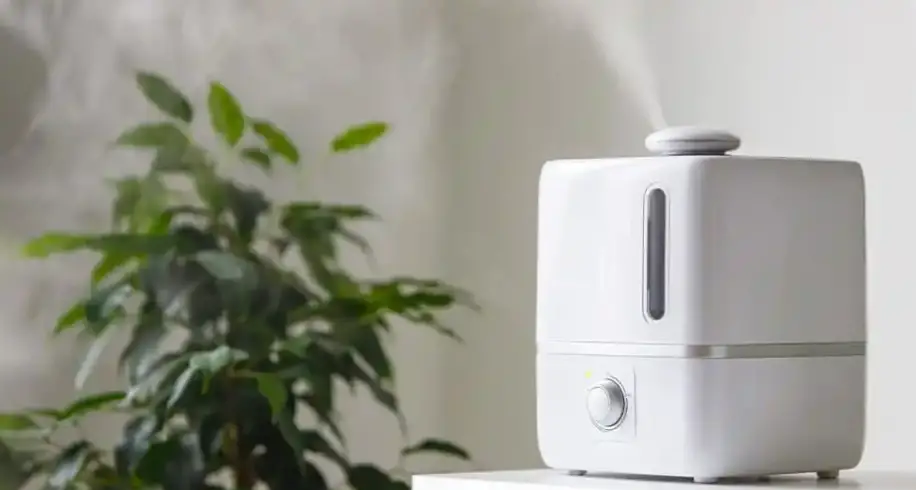
If you’re using a Humidifier in your home, it’s important to keep it clean. A dirty Humidifier can breed bacteria and spread illness. One study found that Humidifiers may contribute to outbreaks of respiratory illnesses, such as Legionnaires’ disease.
To clean your Humidifier, follow some simple steps:
- Empty the water tank and refill it with fresh water.
- Clean the inside of the tank with a mild bleach solution or white vinegar.
- Rinse the tank thoroughly and dry it completely before refilling it.
- Clean the Humidifier’s filter according to the manufacturer’s instructions.
In addition to cleaning your Humidifier, you should also take steps to prevent mold and bacteria growth in your home. These include:
- Adjust the humidity level to between 30 and 50 percent.
- Keep the temperature in your home above 65 degrees Fahrenheit.
- Avoid using tap water in your Humidifier. Use distilled or filtered water instead.
- Don’t use a Humidifier if you have asthma or other respiratory conditions.
How to Clean Your Dehumidifier
Dehumidifiers are a great way to keep your home free of excess moisture, but they need to be cleaned regularly to prevent mold and mildew buildup. Here’s how to clean your Dehumidifier:
- Unplug the unit and empty the water tank.
- Remove the filter and wash it with warm soapy water.
- Wipe down the inside of the unit with a damp cloth.
- Replace the filter and fill the tank with freshwater.
- Plug the unit back in and turn it on.
Repeat this process every few weeks to keep your Dehumidifier running efficiently. If you don’t clean it regularly, your Dehumidifier could start to smell musty and become a breeding ground for mold and mildew.
How does humidity affect your home?
Humidity is the amount of water vapor in the air. It can be measured in terms of relative humidity (RH) or absolute humidity.
Absolute humidity is a measure of how much water vapor is present in the air, regardless of temperature.
What are the benefits and drawbacks of humidifiers and Dehumidifiers?
Humidifiers can be used to increase the moisture content in the air, which can help to:
- Ease congestion and coughing
- Prevent static electricity
- Protect wood furniture from cracking
Dehumidifiers can be used to remove excess moisture from the air, which can help to:
- Prevent mold and mildew growth
- Reduce dust mite populations
- Alleviate symptoms of allergies and asthma
However, both Humidifiers and Dehumidifiers have their drawbacks. For example, Humidifiers can increase the risk of dust mites and bacteria growth, while Dehumidifiers can make the air feel dry and uncomfortable.
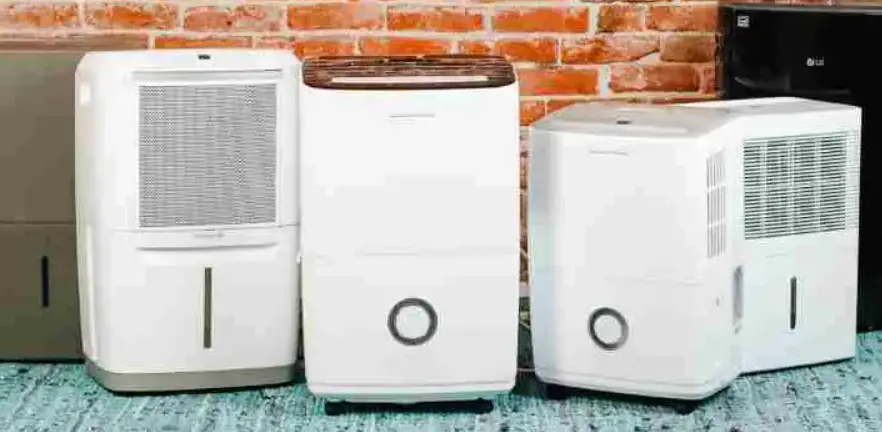
How does the weather affect indoor humidity?
The weather outside can surely affect the humidity levels in your home – whether you have a Humidifier or not. For example, during the winter when it’s cold and dry outside, the air inside your home will tend to be drier as well. Conversely, during the summer months when it’s hot and muggy, the air inside your home will likely be more humid.
There are a few other things that can also affect indoor humidity levels besides just the weather outside.
Some of these include:
- The number of people living in the house
- Whether anyone in the house smokes cigarettes
- How often windows are opened
- Whether the house has central air conditioning or not
- The type of heating system is used
To prevent the effect of outdoor humidity on indoor air, follow these tips:
- In the winter, use a Humidifier to add moisture to the air.
- In the summer, use an air conditioner and/or Dehumidifier to remove moisture from the air.
- Keep windows closed as much as possible, especially during extreme weather conditions [6].
Comparison of Humidifiers and Dehumidifiers for Home Use
Choosing between a humidifier and a dehumidifier for your home depends on various factors. Below is a comparison of humidifiers and dehumidifiers, helping you determine which is better suited for your specific needs.
| Category | Humidifier | Dehumidifier | Considerations |
|---|---|---|---|
| Function | Adds moisture to the air, increasing humidity levels for better comfort and health. | Removes excess moisture from the air, reducing humidity levels to prevent issues like mold and mildew. | Choose based on whether you need to increase or decrease humidity levels in your home. |
| Health Benefits | Helps alleviate dry skin, sinus congestion, and respiratory issues caused by low humidity. | Prevents mold growth, reduces allergens, and creates a less hospitable environment for dust mites. | Select the appliance that addresses specific health concerns in your household. |
| Seasonal Use | Mostly used during winter when indoor air tends to be dry due to heating systems. | Commonly used in humid climates or during rainy seasons when excess moisture is a concern. | Consider your local climate and the specific seasons in which you need humidity control. |
| Maintenance | Requires regular cleaning to prevent bacterial or mold growth in the water tank. | Needs periodic cleaning and emptying the water reservoir to avoid mold or odor issues. | Both appliances require maintenance for optimal performance and hygiene. |
| Energy Consumption | Generally consumes less energy compared to dehumidifiers, making it more cost-effective. | May have a higher energy consumption, particularly in larger models and continuous use scenarios. | Consider energy efficiency and operating costs when making your choice. |
| Cost | Initial purchase and operating costs are typically lower, with a wide range of price options. | May have a higher upfront cost and operating costs, particularly for larger, more efficient units. | Factor in your budget and the size of the area you need to treat for cost considerations. |
Explanation of the table:
- The table provides a comparison of humidifiers and dehumidifiers for home use, including their function, health benefits, seasonal use, maintenance, energy consumption, and cost.
- Each category is described, highlighting the differences between humidifiers and dehumidifiers to assist you in making an informed choice for your home.
FAQ
Should you use a Humidifier or Dehumidifier in winter?
The answer to this question depends on the relative humidity in your home. If the air in your home is already quite humid, then you probably don’t need to use a Humidifier. However, if the air in your home is dry, then a Humidifier can help to increase the moisture content and make it more comfortable.
Should you use a Humidifier or Dehumidifier in summer?
Again, the answer to this question depends on the relative humidity in your home. If the air in your home is already quite humid, then you may want to use a Dehumidifier to help remove some of the excess moisture from the air. However, if the air in your home is too dry, then a Humidifier can help to increase the moisture content and make it more comfortable.
What are the benefits of using a Humidifier?
There are several benefits to using a Humidifier in your home, including:
Increased comfort: Humidifiers can help to increase the moisture content of the air, which can make it more comfortable to breathe, especially for people with respiratory conditions such as asthma or allergies.
Reduced static electricity: Dry air is more likely to cause static electricity, so increasing the moisture content of the air can help to reduce this problem.
Protection for wood furniture: Wood furniture can suffer from cracking and warping when the air is too dry. A Humidifier can help to prevent this damage by keeping the air moist.
Healthier skin: Dry air can cause your skin to become dry and irritated. A Humidifier can help to keep your skin healthy and hydrated.
Why should you use a Dehumidifier?
There are several reasons why you might want to use a Dehumidifier in your home, including:
- Reduced allergens: Dehumidifiers can help to reduce the level of allergens in the air, making it easier for people with allergies or asthma to breathe.
- Improved air quality: Dehumidifiers can help to remove pollutants and other particles from the air, resulting in cleaner, healthier air.
- Prevent mold and mildew: High humidity levels can lead to the growth of mold and mildew. Dehumidifiers can help to keep humidity levels low, preventing the growth of these harmful organisms.
- Protection for electronics: High humidity levels can damage electronic equipment. Dehumidifiers can help to protect your electronics by keeping the air dry.
Do I need a Humidifier or Dehumidifier for a stuffy nose?
If you have a stuffy nose, a Humidifier can help to moisten the air and make it easier to breathe. However, if your stuffy nose is due to allergies or asthma, you may want to use a Dehumidifier to reduce the level of allergens in the air.
Can I use a Humidifier and Dehumidifier at the same time?
Yes, you can use a Humidifier and Dehumidifier at the same time. However, you will need to set the two devices to different levels to achieve the desired result. For example, if you want to maintain a relative humidity of 50%, you would set the Humidifier to 50% and the Dehumidifier to 40%.
Can you put vinegar in Humidifier water?
No, you should not put vinegar in the Humidifier water. Vinegar is an acidic substance that can damage the components of your Humidifier.
Can you put essential oils in a humidifier?
Yes, you can put essential oils in a Humidifier. However, you should only use a few drops of oil to avoid over-saturating the air. In addition, you should make sure to clean your Humidifier regularly to prevent the build-up of bacteria and mold.
Can you get sick from a Humidifier?
Yes, you can get sick from a Humidifier if it is not cleaned properly. Humidifiers can be a breeding ground for bacteria and mold, which can lead to respiratory infections. To avoid this, make sure to clean your Humidifier regularly and use distilled water instead of tap water.
Where should I place my Humidifier and Dehumidifier?
The ideal location for a Humidifier is in the room where you spend the most time. For a Dehumidifier, the ideal location is in the room where humidity is most likely to be a problem, such as a basement or a laundry room.
What are the primary differences between a humidifier and a dehumidifier?
A humidifier adds moisture to the air, increasing humidity levels, which can be beneficial in dry environments. In contrast, a dehumidifier removes excess moisture from the air, making it ideal for humid environments or areas prone to mold and mildew.
When should I choose a humidifier for my home, and what are its advantages?
You should choose a humidifier when your indoor air is too dry, typically in the winter. Humidifiers add moisture, which can alleviate issues like dry skin, irritated throat, and respiratory discomfort. They are especially beneficial in cold, dry climates.
When is it more appropriate to opt for a dehumidifier, and what benefits does it offer?
A dehumidifier is a better choice in situations where your indoor air is too humid, such as during the summer or in areas with high humidity levels. Dehumidifiers reduce moisture, helping prevent mold, mildew, and allergies, as well as improving indoor air quality.
How do I determine whether my home needs a humidifier or a dehumidifier?
To determine your needs, monitor the relative humidity in your home. If it’s below 30%, you may require a humidifier, and if it’s above 50%, a dehumidifier may be necessary. Assess your comfort, health, and any signs of excessive moisture or dryness.
Can a humidifier and a dehumidifier be used in combination to maintain the ideal indoor environment?
Yes, using a humidifier and a dehumidifier together can help maintain optimal indoor conditions. This is especially useful in regions with extreme seasonal humidity variations, allowing you to adjust moisture levels as needed for comfort and health.
What are some safety considerations when using a humidifier or dehumidifier in my home?
Safety considerations include proper cleaning, regular maintenance, and monitoring humidity levels. For humidifiers, using distilled water and cleaning the unit prevent the growth of bacteria. Dehumidifiers should be emptied and cleaned to avoid mold and odors.
What is the impact of using a humidifier or dehumidifier on energy consumption in my home?
Humidifiers typically have a minimal impact on energy consumption, as they do not heat or cool the air. Dehumidifiers may increase energy usage slightly, but their benefits in terms of preventing mold and improving indoor air quality often outweigh the cost.
Can using a humidifier or dehumidifier help with specific health issues or allergies?
Yes, a humidifier can help relieve dry skin, respiratory discomfort, and allergies caused by dry air. A dehumidifier can reduce allergens and prevent mold growth, alleviating allergies and respiratory issues associated with excess humidity.
Useful Video: Explaining The Differences Between Humidifier and Dehumidifier
Conclusion
Humidifiers and Dehumidifiers are two essential pieces of equipment that can help to regulate the humidity in your home. Both have their advantages and disadvantages, so it’s important to choose the one that’s right for your needs. If you’re not sure which is best for you, consult with a professional or take some time to research both options before making a decision.
In general, Humidifiers are better for homes in dry climates, while Dehumidifiers are better for homes in humid climates. However, there are exceptions to every rule, so it’s important to consider all factors before making a purchase.
References
- https://www.leeac.com/blog/how-to-choose-between-a-humidifier-and-dehumidifier
- https://www.healthline.com/health/humidifiers-and-health
- https://www.breathingspace.co.uk/dehumidifier-guide
- https://www.cielowigle.com/blog/humidifier-or-dehumidifier/
- https://www.diffen.com/difference/Dehumidifier_vs_Humidifier
- https://burkholders-hvac.com/humidifiers-vs-dehumidifiers/





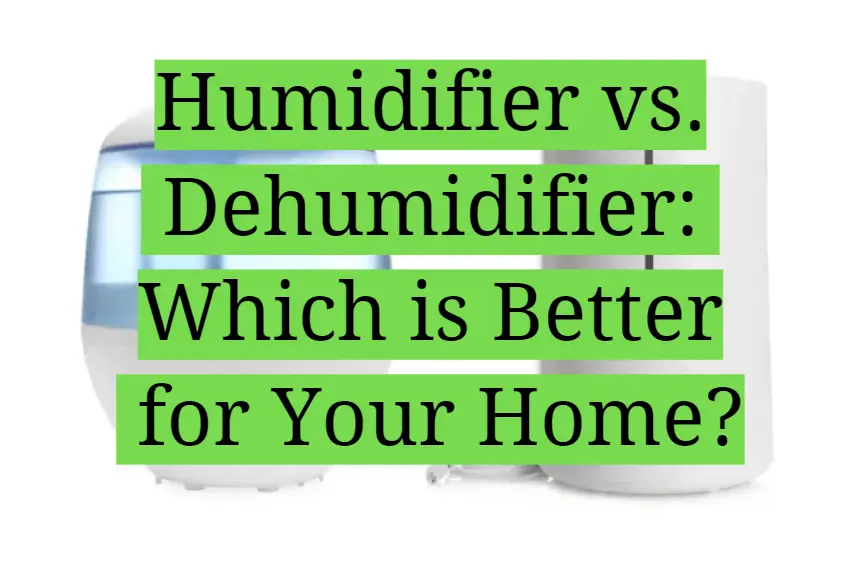








Leave a Reply